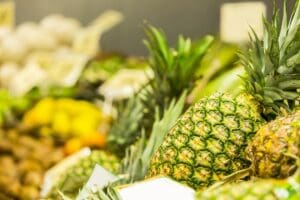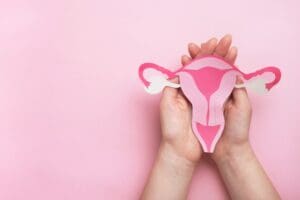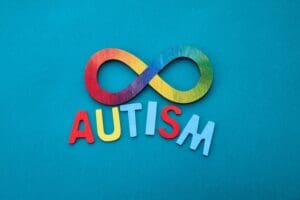6 interesting women-founded businesses
In honour of International Women’s Day
With International Women’s Day approaching, we take a closer look at the characteristics of women-founded businesses and then explore the profile of six UK businesses founded by women.
Characteristics of women-founded businesses
Current stage of evolution of women-founded businesses based in the UK
*Beauhurst
Of the 4,102 UK businesses with women-founder teams, just under half of these businesses are in the early start-up, or seed, stage. Only 5% are in a stage of failure (zombie or dead), with a negligible percentage being classed as dead.
Most of the 5% of businesses that have exited have done so by acquisition, with an average acquisition price of £63.6m and a range of £100k to £325m. For those that exited via IPO, the average market capitalisation was £238m, with a range of £13m to £577m.
Gender balance (% female) of directors and key people for women-founded businesses
*Beauhurst
* Director: Percentages are of 3,743 businesses with available data.
* Key people: Percentages are of 4,045 businesses with available data.
We can see that most of these businesses have women-only teams for both directors (58%) and key people (63%). On the other end of the scale, very few have only male directors (at 5%) and, of the available data, there are no businesses who do not have women in key people positions. In short, businesses with women founder teams seem to be more likely to have a higher percentage of women in key or higher-up roles.
Investment into women-founded businesses over the years
Fundraisings over the past 10 calendar years, for businesses with women founding teams
*Beauhurst
As we have seen with other research areas, 2021 was a good year for investment for women-founded businesses as well, with total fundraising value seeing an increase of 62% from 2020. The decline after 2021 is to be expected, as this appears to be an economy-wide trend. The average cheque size for these businesses, based on 4,989 fundraisings, is £1.08m with an average pre-money valuation of £6.01m. Interestingly, these businesses, as a whole, do not have much fundraising activity, with the average number of fundraisings being 1.
Company profiles
To showcase the variety and range of businesses being founded by only women-teams, we took a deeper dive, into six stand-out businesses.
1. Ananas Anam

Founded in 2013, Ananas Anam’s, the pioneers of using waste pineapple leaves to create innovative natural textiles, journey began when their founder, Dr Carmen Hijosa, was a consultant for the Philippines leather export industry in the 1990’s. Her shock at the environmental impact caused by mass leather production and chemical tanning, along with her knowing that PVC alternatives were not the solution, drove her to research a sustainable alternative, which would be a new, non-woven textile that could be commercially produced.
Dr Carmen Hijosa is the founder and Chief Creative & Innovation Officer for Ananas Anam. She is an ethical entrepreneur, who is pursuing a vision of a more sustainable future where people, the environment and the economy are connected. Her mission to develop a natural, sustainable alternative led her to obtain a PhD at the Royal College of Art, when Ananas Anam was being further developed through the incubator program at InnovationRCA. She has been awarded with the Cartier Women’s Initiative Award (sustainable innovation – 2015) and the Innovate UK women in innovation award (sustainable materials – 2016).
All of this led to the development of Piñatex. It is made of fibre from the leaves of the pineapple plant, which are deemed a waste product of the existing pineapple harvest, meaning that there is no additional environmental resources used to produce the raw material. This fibre can be extracted from the waste pineapple leaves by the farmers themselves. At a factory located in the Philippines, it is then industrially processed into a non-woven mesh textile to produce Piñatex’s base. This textile is then shipped to a finishing factory in Barcelona. Piñatex only produces 5% waste, in comparison to the up to 25% waste leather hides can produce due to their irregular shape.
Their next innovation would be Piñayarn, a 100% plant-based yarn that is both recyclable and biodegradable. Being a direct competitor of petroleum-based textiles and raw fibres, Piñayarn is a more sustainable option, as it requires less in terms of land, water, and pesticides for its production, due to its use of pineapple leaves that would otherwise be discarded. Its production process is a closed-loop method, where fibres are subjected to a dry spinning process that has no need for any water or harmful chemicals.
Anam PALF has now been introduced to the wider material market due to it offering an essential solution to the textile crisis with it assisting in mitigating microfiber pollution. It is their premium textile-grade fibre made from waste pineapple leaves and is the key ingredient for the above products, Piñatex and Piñayarn. It has been developed using Ananas Anam’s technology and traceable supply chain that goes from plant all the way to product. To create the product, they process pineapple leaf fibres using their unique proprietary method, that utilises an enzymatic process to remove impurities so that no harmful chemicals are needed; this means that there is no need for bleaching, pulping, or dyeing.
At the beginning of this year, Anam PALF was certified as 99% biobased with the USDA Certified Biobased Product label. This product label is an indicator of the percentage of biobased content contained within a product, so that consumers can making informed purchasing decisions. The remaining percentage of Anam PALF’s certified 99% can be attributed to the minerals naturally present in plants. As their processing method ensures that the pineapple leaf fibres are not chemically modified, the natural minerals remain in the fibres, hence causing the characterisation method to identify the remaining % as ‘non-biobased’. In addition to this achievement, Anam PALF was also awarded the Preferred Material Prize at crQlr Awards 2023.
In late 2023, a partnership was announced with Calvin Klein and TENCEL™ to launch ‘The Sustainable Knit Trainer’, with the upper knitted part of shoe being composed of a blend of Ananas Anam’s Piñayarn and TENCEL™ Lyocell fibres. Lyocell is sourced from responsibly managed forests and is produced by using a solvent spinning method. This method recycles over 99% of the solvent and water and ensures complete traceability in the final blended yarn. The upper part of the trainer is composed of 70% TENCEL Lyocell REFIBRA™ and 30% Piñayarn, incorporating recycled cotton and wood pulp from sustainable forests.
During February of this year, Ananas Anam’s new partnership with Tearfil, a visionary Portuguese spinning mill, was announced. Through this partnership, Ananas Anam has become Tearfill’s fibre partner. They will be providing their specialist knowledge and unique processing method of pineapple leaf fibre in order to create new sustainable yarns. These yarns will be created from Anam PALF in a closed-loop production by using their own dry-spinning technology, ensuring that there will be zero waste and that no harmful chemicals will be used. Ananas Anam will benefit from being able to offer their customer base high-quality, dry spun yarns and will assist in bringing new natural materials to the market and end-consumers.
2. Aparito

Wrexham based Aparito, an award-winning health technology company, was founded by their CEO Dr Elin Haf Davies in 2014. During her work with paediatric patients suffering from life-threatening and life-limiting diseases, who were enrolled in clinical trials, at Great Ormond Street Hospital for Children, Dr Elin Haf Davies witnessed as many families were forced to drop out of these studies because of the strain caused by extensive travel and costs for tests and follow-up appointments. She became determined to change the system, and this determination led her to found Aparito and to develop their Atom5™ eCOA Platform.
At the time of establishing Aparito, Dr Elin Haf Davies already had a wealth of experience, including 21 years of clinical (as Senior Clinical Research Nurse and Trial Administrator at Great Ormond Street Children’s Hospital), research (PhD at University College London) and regulatory experience (as Scientific Assessor at both the Medicines Health Regulatory Authority (MHRA) and the European Medicine Agency (EMA)). She has been an Associate Fellow at the Centre for the Advancement of Sustainable Medical Innovation (CASMI) since 2013, and, from 2014, an Academic Fellow at Bangor University dedicated to the cost evaluation of orphan drugs. Alongside all this, she is the Chair of Metabolic Support UK, the leading patient organisation for Inherited Metabolic Disorders, who are supporting thousands of patients around the world.
Aparito’s Atom5™ is the eCOA platform able to capture patient data through a variety of methods, including video assessments, ePROs, telemedicine, wearables, and eConsent. This platform has 5 key features:
- Multi-Device Patient Data Capture: With availability via iOS and Android apps, as well as a web browser, Atom5™ allows for continuous data capture at home. In the clinic, provisioned devices, and a BYOD (bring your own device) approach are both supported.
- Clinician and Sponsor Portal: This portal supports a wide range of reporting and analytics capabilities, while providing up-to-date patient and study-wide indicators.
- eCOA Library: Combining video capture and analysis with wearable device data and ePROs, allows this library to provide a richer eCOA and to develop novel digital endpoints with unmatched insight into disease burden and progression.
- Data Management & Analytics: Aparito’s data science team are able to provide techniques such as computer vision, image & signal processing, time series analyses, and Machine Learning (ML) tools in order to enhance data insight.
- Integrated eQMS: The eQMS module makes CSV simple and allows the user to maintain FDA 21 CFR Part 11, HIPAA, and GDPR compliance.
Currently, this platform powers clinical studies for 8,000 patients in over 20 countries and in 18 different languages.
A partnership with TruLab, another company working towards improving rare disease studies, was announced during 2023. This partnership was formed with the mission to improve the efficiency and experience of clinical trials. Both businesses’ mobile platforms are designed so that data integrity is maintained, and potential data loss is minimised. Together, they are on a mission to reduce the burden on family members and caregivers who are seeking treatment for the children under their care. By ensuring that patient samples and data points are collected according to the study procedures and are not lost, through the application of innovative technologies, the chances of success in the clinical trial are ultimately increased. Both businesses, by digitising critical procedures within the clinical trial process, are able to supply real-time visibility to data collection and integrity. This all helps to lessen patient and site burden, and to improve the patient experience and retention.
At the start of 2024, it was announced that they have collaborated with the University of Cambridge Royal Papworth Hospital, Pulmonary Hypertension Association UK, and Garmin Health. They came together in an effort to enhance clinical trials’ patient-centricity by redefining the parameters of measurements and engagement in clinical research, in order to develop the Digital 1-Minute Walk Test (d1MWT). The 6-Minute Walk Test (6MWT) has traditionally been the way to assess patient function and prognosis, but Dr Joe Newman from Royal Papworth Hospital has challenged this by questioning the arbitrary nature of this test’s duration (Butland et al. 1982). This research has proposed that the 6-Minute Walk Distance (6MWD) can be shortened, and that this could be advantageous for both patients and research protocols. Aparito’s Atom5™ platform has been used by the study team to collect raw data from patients with pulmonary hypertension using Garmin wearables, by Garmin Health’s SDK integration, to capture outdoor 1-Minute Walk Tests (1MWTs).
During July of last year, Aparito was acquired by Eli Lilly and Company, becoming a wholly owned subsidiary of the global pharmaceutical company. The full terms of the deals have not been disclosed, but it is predicted that it will generate an initial return of 2.9x for Aparito’s previous backer the Development Bank of Wales, who provided them with a £1.2m equity investment. Depending on Aparito’s performance, there is potential for this return to rise to 3.2x, according to the Development Bank of Wales.
3. Here We Flo

Since their incorporation in 2017, Here We Flo have had the same mission, which is to make period products that inspire confidence in people and empower them about their messiest bodily moments. The journey of this company started with co-founders Tara Chandra and Susan Allen, who met at the London School of Economics, joking about starting a social-impact business and discussing the difficulty of finding organic tampons, which included a long talk about the synthetic fibres, pesticide and harsh chemical residues, and negative environmental impact of conventional period products.
Tara Chandra has achieved a degree in Economics from Columbia University, and an Executive Global Masters in Management from the London School of Economics. She was also a soul singer/songwriter under the name ‘Tara Priya’ from 2010 to 2017, where she had international record and publishing deals with indie success, with a #2 album and #6 single in Asia, and international tours across Canada, Europe, and Asia. Susan Allen gained a degree in Communication and Legal Studies from the University of Massachusetts and a MSc in Management from the London School of Economics. In addition to her work at Here We Flo, she is an Advisory Board Member for Sigma Labs, an Advisory Committee Member for the Restuccia Health Justice Fellowship at Community Catalyst, and a Diversity, Equity and Inclusion Committee Member for the British Beauty Council.
Here We Flo offers a range of period products, including:
- Tampons: Their eco-applicator tampons are hypoallergenic and biodegradable, with no synthetic fibres, chemical residues, dyes, pesticides, chlorine bleach or fragrances. They also offer a non-applicator option.
- Pads: Their bamboo period pads are made of fully organic, biodegradable bamboo.
- Period pants: These are machine washable and able to hold up to five tampons’ worth of menstrual flow. Here We Flo partnered with Netflix’s Sex Education to create a line of period pants to, in their words, bring the most empowering celebration of self-love, self-expression and self-exploration.
In line with their sustainability promise, they use biodegradable and compostable plant cellulose for their pad, liner, and tampon wrapper, and use sugarcane biopolymer for their applicators, which is 95% plant based. They have saved at least 17 million tampons/pads and over 2 million bladder pads from landfill. They also donate product each month to those in need and to menstrual charities, along with giving 5% of their profits to both people and the planet.
In 2023, Here We Flo became one of the few menstrual health businesses worldwide to achieve recognition as a Certified B Corporation TM (B Corp). This certification is awarded to businesses after a rigorous assessment process. They gain this certification only if they meet the social and environmental performance standards and prove they are committed to using business as a force for good, with the process measuring a company’s impact on its employees, customers, community, and the environment. In order to become a B Corp, a company must score at least 80 points; Here We Flo achieved 109.9 points.
During May of 2024, Here We Flo entered a partnership with Team c2Sanitary, the owners of the winning project of Thurrock Councils Youth Inspire Hub 2023 programme of Thurrocks Next Top Boss, which was sponsored by c2c. Following regular planning meetings and reviews, period care product dispensers began to be installed in customer and colleague toilets across the network.
Announced in 2025, Here We Flo is working in partnership with England Netball and the Netball Super League (NSL), to supply a range of products to the NetBall Family for use at select England Netball and NSL major events and community competitions. Events included in this are the Vitality Netball Nations Cup, which concluded in London on the 8th and 9th of February, and the Netball Super Cup, set to be held on International Women’s Day, the 8th of March, at Sheffield’s Utilita Arena. They have also committed to supplying products for select community competitions, such as the Junior National Schools Finals, Junior National Clubs Finals, and Premier League Play-Offs. In addition, England Netball members and grassroots clubs will also be provided with an exclusive discount code for the Here We Flo website.
4. FA-Bio

Founded in 2015, and based at Rothamsted Research Centre since 2016, FA-Bio, previously FungiAlert, was founded by Dr Angela de Manzanos Guinot and Dr Kerry O’Donnelly Weaver. It started with the mission to develop tools to support sustainable agriculture and revolutionise disease management practices. The founders were working towards this mission during their PhD studies at Imperial College London where they developed the SporSenZ technology, which is used for the early detection of soil pathogens. Their mission today is to assist in minimising agriculture’s environmental impact while also sustainably increasing crop productivity. Their focus is on discovering microbial bio-products in order to deliver sustainable farming solutions.
Dr Angela de Manzanos Guinot (CEO) holds more than 16 years of experience in agriculture and in being innovative in solving challenges of sustainability. She has achieved her degree and MSc at the Universidad Politecnica de Valencia, completed her Master Research in Chemical Biology of Crop Protection and Sustainability (for which she was awarded the Lord Porter Prize), and her PhD in Chemical Biology at Imperial College London. Dr Kerry O’Donnelly Weaver (CIO) has over 15 years of experience in research, with 12 of those being focused on sustainable agriculture. She has achieved a PhD in Crop Sustainability and Protection from Imperial College London. Due to her research, she was the recipient of four awards, and she published three peer-reviewed research papers. In addition, she has a MSc in Chemistry and a postgraduate in Master of Research of Crop Sustainability and Protection.
FA-Bio has two underlying elements to their business, FA-BioAg and FA-BioLab. FA-BioLab partners with growers to study key soil microbial communities. They are studying soil biodiversity through the use of their patented technology and soil microbial analysis tool, SporSenZ, which harnesses the response of soil microbes to the environment. The SporSenZ works by its composition mimicking roots compounds. Because of this, it is able to attract active and dominant microbes present in the soil. After it has captured a microbial sample, it is sent back to the lab where expert scientist perform species identification by using DNA sequencing methods.
FA-BioAg partners with strategic businesses to develop sustainable bioproducts. Their mission is to find microbial active ingredients with disease control, plant growth promotion and fertiliser activities, while also aiming to minimise agriculture’s environmental impact and to restore soil health, but also increasing crop yields in a sustainable way. They are using their Microbial Discovery Platform to work towards these goals, as it revolutionises the discovery of microbial active ingredients for biofungicides and biofertilisers. They are also utilising DNA sequencing methods, bioinformatics, microbial bioassays, and glasshouse studies in order to study FA-BioLab’s microbial library, that has been grown over the years through sampling active soil microbes globally and working with a wide range of crops, and to find microbial active ingredients for bioproducts.
Near the beginning of 2023, FA-Bio was awarded a £17,606 grant from the BBSRC Campus Impact Acceleration Grant Scheme, as part of their support of tenants of Rothamsted Enterprises and businesses in the SHAKE Climate Change Programme. This funding will allow them to access the academic and scientific research services available at Rothamsted Enterprises, including the Growth Chambers and Glasshouses, which in turn will accelerate their discovery projects to the next stage of development.
That year also saw them awarded funding from the Framing innovation Programme, delivered by Innovate UK, to introduce game-changing innovation within UK cereal farming, with the aim to significantly benefit farmers by reducing costs, crop losses, and reliance on chemical pesticides. FA-Bio will lead this project in collaboration with the Centre for Agriculture and Biosciences International (CABI) and Crop Health and Protection (CHAP), with the aim to develop a novel dual-action biopesticide, providing farmers with a sustainable and effective pest control product.
At the beginning of this year, they raised a £5.3m investment from existing shareholders, new private investors, and three European venture capital investment funds, who are Clean Growth Fund, Pymwymic, and Ship2B Ventures. This investment will be used to support the commercialisation of their technology, their ongoing research work, and to fund the expansion of their team.
In March of last year, FA-Bio were awarded grant funding from the Biotechnology and Biological Sciences Research Council (BBSRC) for the purpose of developing a proof-of-concept imaging-phenotyping assay that is able to assess the morpho-physiological effects of drought stress on maize plants.
5. Spectrum Tailored Technologies

Spectrum Tailored Technologies incorporated in late 2022, with their main offering, Jam Up!, being an engaging digital play support tool that aims to encourage autistic children to accomplish everyday tasks, like getting themselves dressed and brushing their teeth. The founder and creator is Rachael Malthouse, a healthcare professional who holds a BSc in Physiotherapy and a MSc in Interprofessional Development, and who is a current PhD Student at the University of Plymouth. Rachael witnessed how her autistic son found everyday tasks to be overwhelming and frustrating, leading her to the realisation that if she utilised her son’s love of gaming to help him in these tasks, it would bring real improvements to their lives. This is how Jam Up! was born, along with the company’s mission to promote independence and to lessen daily struggles.
At its core, Jam Up! is a multitask toolbox app that has been designed to help autistic children, with an age range of 5- to 14-years-old, in completing everyday tasks. The app offers customisable tasks, tailoring itself to the individual child, so that each child is properly supported without disrupting their set routine. In addition, the app provides educational videos and daily tips for parents/carers/guardians on how to encourage their child’s independence. The benefits of using Jam Up! include:
- Increasing autistic children’s independence when it comes to completing everyday tasks.
- Improving the health and well-being outcomes for both children and their guardians.
- Reducing the time spent on task completion.
- Increasing school attendance for children and work/study attendance for guardians.
By working with autistic children, guardians, and key stakeholders from healthcare, social care, and education, as well as having the app pilot tested across Essex, Devon and Cornwall, it has been ensured that Jam Up! is accessible, feasible, sustainable, and useable for its end-users. It is set to be shared with more focus groups as the app has now been wire-framed, evaluated, and developed. Since the inception of the programme back in 2023, it has raised over £90k worth of investment and support and has had the opportunity to build up momentum and expertise through the likes of Slush’d and Creative UK.
Their achievements so far are:
- Winners of N-CODE Pitching Competition, University of Birmingham in June 2024
- Runners Up in the Essex Care Tech Challenge in February 2024
- Winners of the Startup Cornwall Slush’d Pitching Competition in September 2023
They also worked in collaboration with from the University of Plymouth, Angela Ruskin University, and SMILE during 2023/24 in order to develop their tooth cleaning task.
Their plans for 2024/25 include securing further investment so that they can take the next step in building and establishing their final product and start making sales. It is expected that these sales will be larger B2B purchases in the health and education sectors, with the addition of B2C sales.
6. Tellmi

Officially launching in 2017, Tellmi, previously called MeeToo, is a scalable mental health solution that has created a safe and inclusive digital community for young people where they can share their own experiences, receive the help that they need, and provide advice for others within the digital community. Founded by psychologist Suzi Godson PhD and engineer Kerstyn Comley PhD, they have been successfully working towards their mission of addressing the mental health crisis and tackling health inequalities for young people. Presently, Tellmi is one of the few digital platforms available for NHS commissioning and is currently helping to support more than 90,000 young people with their mental health.
Tellmi is a safe, anonymous app that combines pre-moderated peer support and pre-emptive counsellor intervention so that young people receive the necessary level of support easily. Those using the app can share their own experiences with anxiety, autism, dating, depression, self-harm, self-esteem, and more. Features of the app include:
- Being able to talk to people your age about what you are going through.
- Professional support provided by in-house counsellors who are available 365 days a year.
- Filtering feeds by topic.
- Moderators check all posts and replies before they go live to ensure that there is zero bullying and discrimination.
- Filter hundreds of services using the Tellmi directory, making it easier to find the specialist support needed.
An independent evaluation of Tellmi was conducted by the Evidence Based Practice Unit at University College London and the Anna Freud Centre in 2022. The study of 876 young people, which spanned nine months, found statistically significant evidence that using the Tellmi app improves mental health, increases confidence, and decreases feelings of loneliness. Other research led by the York Health Economics Consortium (YHEC) discovered a statistically significant reduction in GP visits, A&E attendance, and school counsellor use for the young people who are users of the Tellmi app. Excluding Tellmi’s service costs, the estimated cost saving is £215 per person over one year.
Tellmi’s 2023 Impact Survey, with a sample size of 1,007, reported that using Tellmi:
- Makes it easier for them to be honest about their feelings (94%)
- Connects them to others with similar problems (92%)
- Helping others on the app makes them feel useful (88%)
- Being a part of the community makes them feel less alone (80%)
During 2023, it was announced that they received funding from the Government’s Small Business Research Initiative (SBRI) in order to assist with the development of the Tellmi app for autistic children and young people. With the Autism Research Centre and the Autism Centre for Excellence at the University of Cambridge as partners for this project, 3,555 posts and replies from autistic users will be analysed so that a picture of what really matters to them can be created. This analysis will inform a survey and a series of interviews with the desired outcome being able to tailor the app so that it better meets the needs of its autistic users. In addition, autism screening tools developed by the Autism Research Centre will be integrated into the app, helping to facilitate the pathway towards earlier diagnosis.
As announced last year, Tellmi is one of five successful digital healthcare innovators who will be a part of East Midlands Digital Health Accelerator programme. Through this accelerator, they will receive support from Health Innovation East Midlands, who are the East Midlands’ innovation arm of the NHS. The goal of this programme is to work with the participants in identifying opportunities to deploy their innovations for the benefit of services and patients in the region.
Tellmi, alongside NHS Somerset, were runner-up for the Best Mental Health Partnership with the NHS category at the HSJ Partnership Awards 2024. Their silver prize is in recognition of outstanding dedication to improving healthcare and effective collaboration with the NHS. This collaboration between the two groups led to the launch of a new digital mental health service for all young people, aged from 11 to 18, in Somerset. This service provides a safe platform that supports those experiencing anxiety or other concerns and empowers them to help each other in a controlled environment, with supportive professionals on hand to assist by accessing any potential harm and providing appropriate support.
Also in 2024, Tellmi launched a specialist support solution to assist young people with diabetes. This was in response to research they conducted in partnership with NHS Somerset, funded by Q Health, which uncovered that young people with diabetes were not getting the necessary mental health support. This support is accessible through the Tellmi Directory and is available in regions where the service has been commissioned. Included in the support is a series of diabetes specific tools and resources such as direct links to their local paediatric diabetes clinic, and a Diabetes Pack which is provided by their clinician in their three-monthly clinic meeting. These packs contain an information booklet, fun stickers for pods and iPhones, and a ‘My Rights At School’ card which can be shown to teachers if and when needed.
We always recommend that you seek advice from a suitably qualified adviser before taking any action. The information in this article only serves as a guide and no responsibility for loss occasioned by any person acting or refraining from action as a result of this material can be accepted by the authors or the firm.
Sign up to receive exclusive business insights
Join our community of industry leaders and receive exclusive reports, early event access, and expert advice to stay ahead – all delivered straight to your inbox.
We can help
Contact us today to find out more about how we can help you
